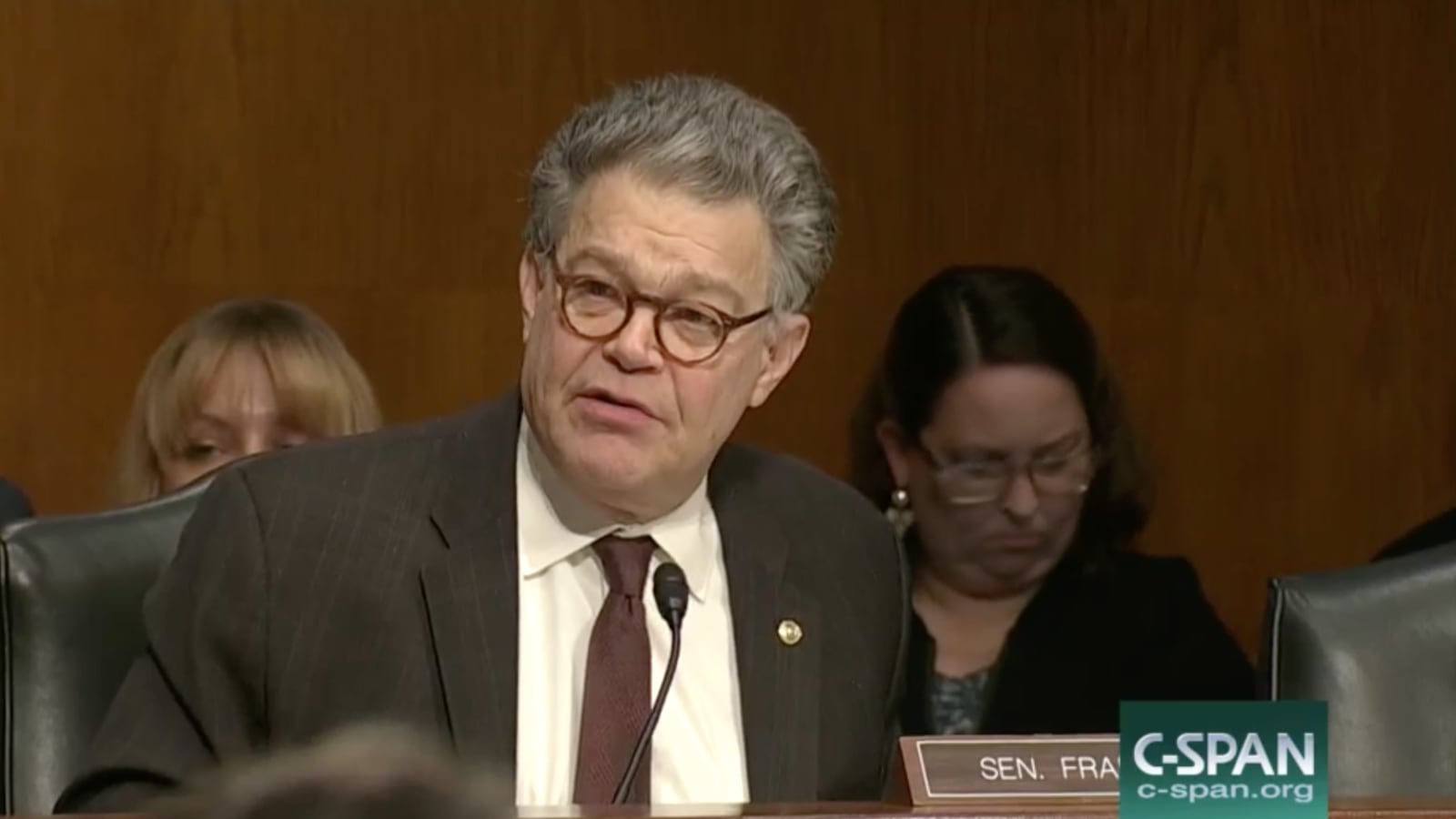Yesterday during a hearing about Betsy DeVos before the U.S. Senate Education Committee, Sen. Al Franken (D-Minn.) held up Indiana’s voucher program as a “perverse” model of what he fears might happen if DeVos is confirmed as secretary of education.
“Basically what was happening is we were taking money from public schools where poor kids need those resources and giving them to middle class kids to continue going to religious school,” Franken said. “How perverse is that?”
Critics of using taxpayer dollars to fund private education say, as Franken did, that vouchers drain money and resources from public schools. Voucher supporters, like DeVos, argue they provide families more choices for how to educate their children.
Franken cited data on Indiana’s system of taxpayer funded vouchers, which has been in place since 2011, showing that in recent years, more and more students using vouchers have not first attended public schools, noting that many of Indiana’s voucher-accepting schools are private Christian schools.
In 2011, just 9 percent of voucher users had never before gone to public school. That was true for more than half of students using vouchers in 2016.
Indiana’s voucher program is also seeing more growth among middle-class families, which Franken also referenced in his comments.
An Indiana family of four making less than $44,863 per year can receive a voucher of up to 90 percent of the funding that their local public district would receive from the state. Since 2013, families earning up to $89,725 per year have also been eligible — but they get only half the state aid their district would receive. In 2016, 22 percent of voucher students were from the suburbs, compared to 16 percent in 2011.
Indiana has one of the largest voucher programs in the country, with the number of students using vouchers rising from 3,911 in 2011 to 32,686 in 2016. Nearly 3 percent of Indiana kids use public funds to pay private school tuition.
DeVos, whose nomination won narrow approval from committee members, now goes before the full Senate.
Find Franken’s comments here:

